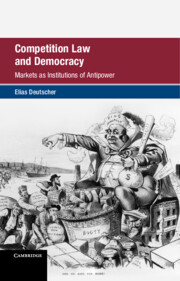The accepted approach of competition law to non-horizontal mergers, largely based on the Chicago School of Antitrust Law and Economics paradigms, is criticized on both sides of the Atlantic as too lenient, disregarding developments of economic theory, and no longer adequate in the reality of the digital economy. Current economic research confirms the legitimacy of fears about the effects of non-horizontal concentrations that were raised before the Chicago School put them into doubt. The disbelief in the accuracy of the former US non-horizontal mergers policy resulted in the Federal Trade Commission and the Antitrust Division of the Department of Justice adopting new Vertical Merger Guidelines. The changes introduced were considered insufficient, which led to the unilateral repeal of the guidelines by the FTC and the start of work on new guidelines introducing a stricter approach. The new U.S. 2023 Merger Guidelines introduced far-reaching changes taking into account the modern views of economists and empirical research on vertical mergers. Comparatively, the EU Commission’s Non–Horizontal Merger Guidelines still do not fully correspond to what empirical research and contemporary economic theories say about the possible effects of vertical mergers. Thus, the revision of the EU guidelines seems necessary.
